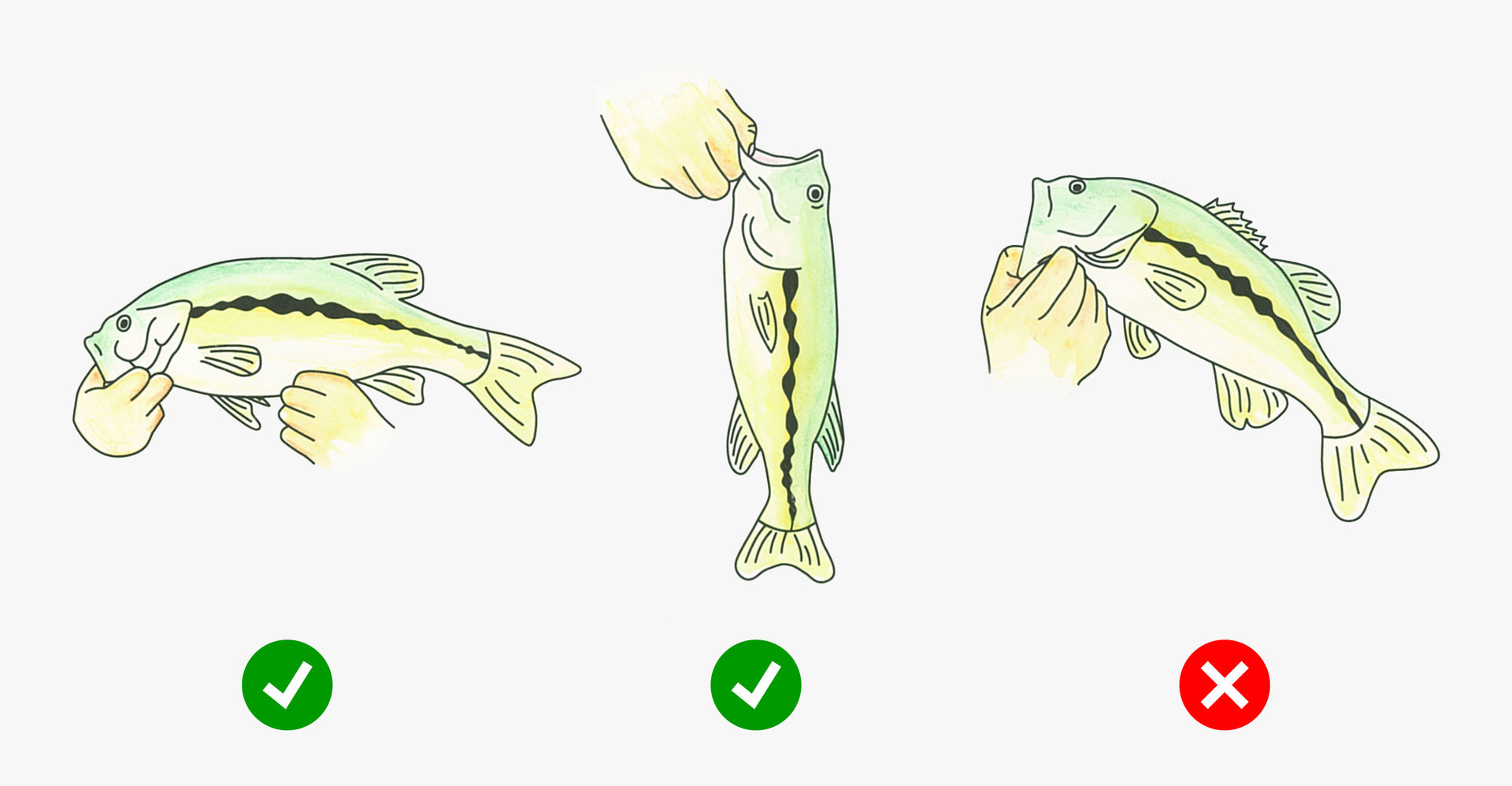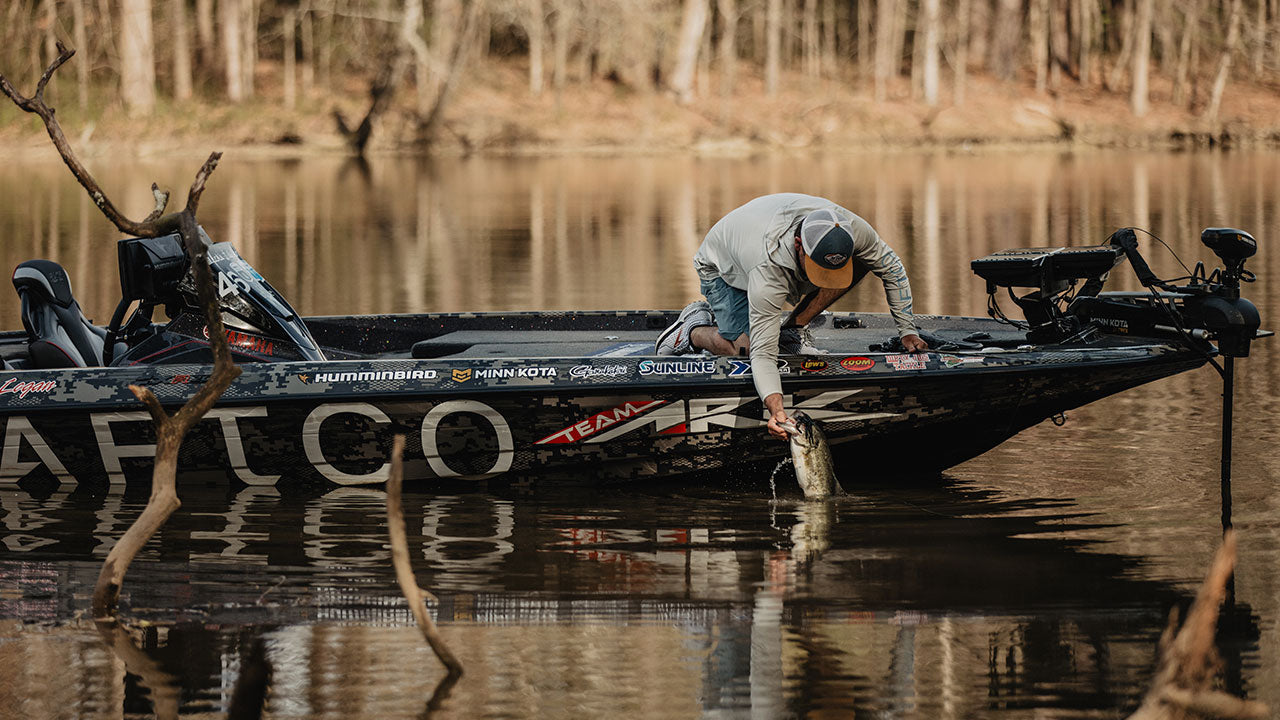
Bass Care Guide
How to Take Care of Your Catch Prior to Release
5 Bass Care Key Points
Catch and release can have minimal effect on bass survival if fish are landed quickly, carefully, and held in livewells with sufficient oxygen and temperatures at or below 84 degrees. Keep these 5 helpful points in mind.
1. Water temperature is the most important factor in largemouth survival. Maintain water temperatures of no more than 84 degrees in your livewell. Keep frozen water bottles in your ice chest to use for cooling your livewell water as needed.
2. Fish need oxygen. Maximize aeration and flush the livewell with fresh water periodically to insure you have adequate oxygen levels.
3. Land your fish as quickly as possible and keep them in the air for as little time as possible.
4. When handling the fish be careful not to remove the protective slime or damage the gills. Wet your hands before handling, and don't "boat flip" your bass onto the deck.
5. Proper positioning when handling fish is important. Hold bass horizontally with two hands, or fully vertical with one hand. Do not put the weight of the fish on the jaw, or the jaw could be damaged.
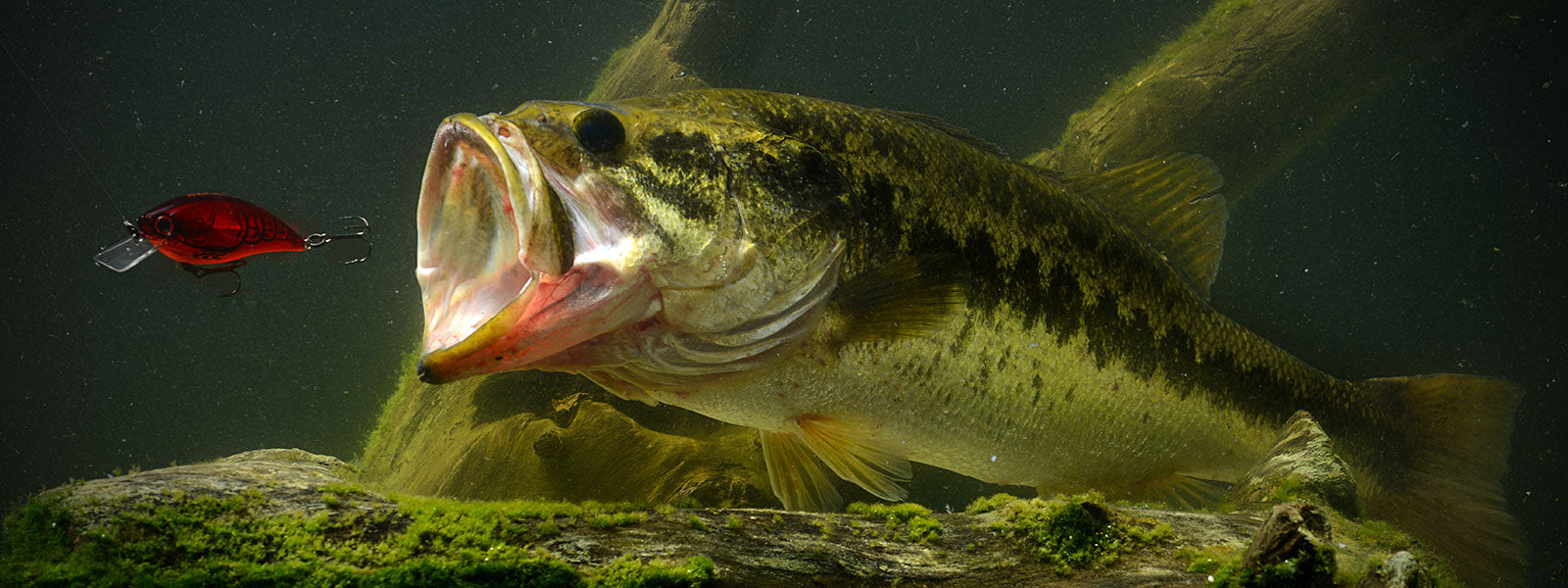
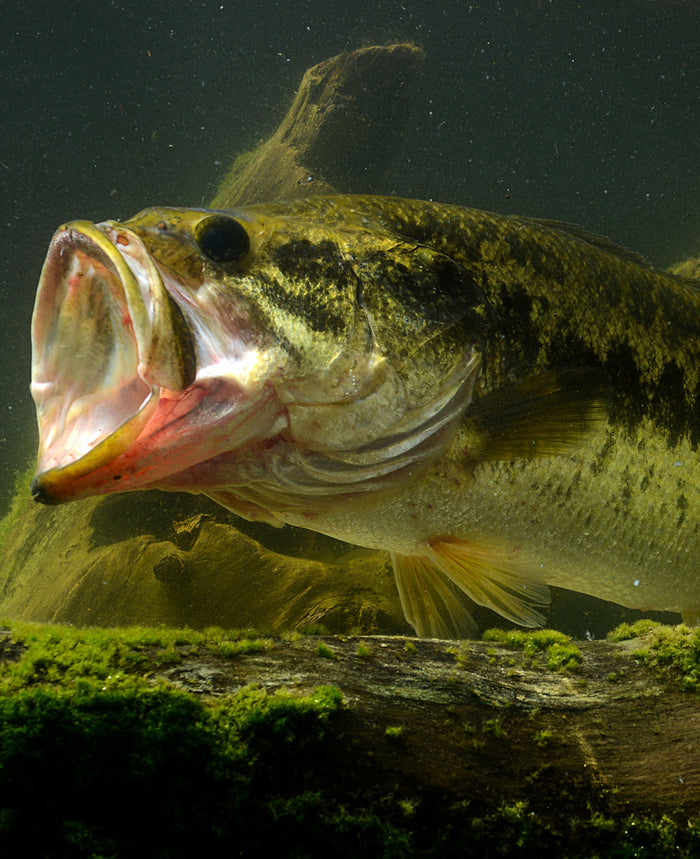
Bass Care 101
We are fortunate here in the U.S. to have a healthy largemouth bass resource. Starting with Ray Scott and his creation of B.A.S.S. and the catch and release ethic in bass fishing, anglers and bass tournaments have been and continue to be protective of this valuable resource. An important key to a future healthy resource, and continually growing bass fishing opportunities is how anglers care for the bass we catch.
The purpose of this guide is to help educate anglers on the basics of how to best care for largemouth bass. The increasing number of largemouth bass anglers and tournaments at all levels makes this information more important now than ever. Many tournaments provide live-release boats and good weigh-in conditions that help survival of fish, but they cannot save injured or severely stressed fish. It is essential that every angler understands that the conditions during capture, handling, and livewell confinement are critical in determining whether a bass ultimately survives after release.
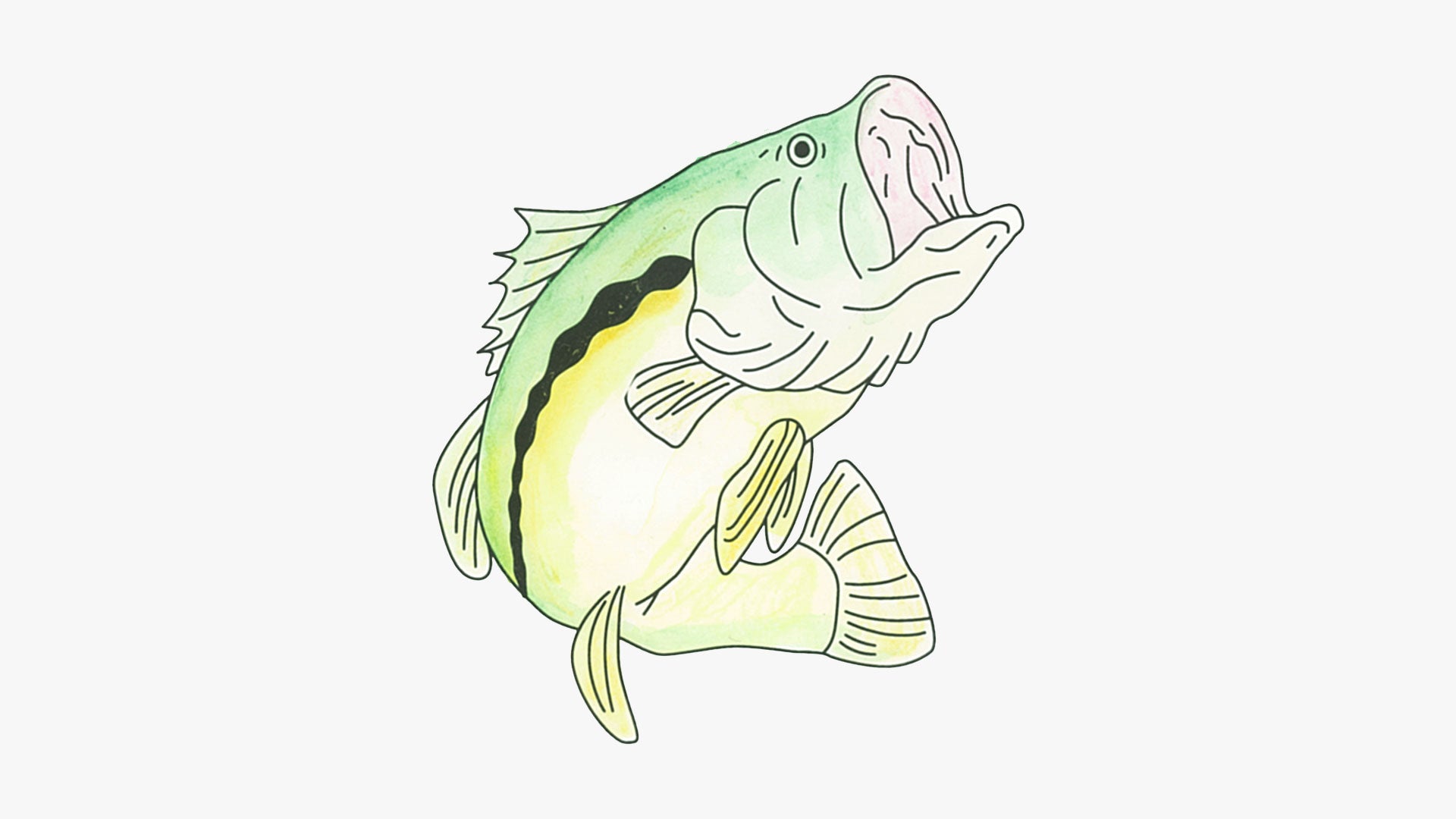
Over the years there have been several valuable studies and publications on bass care. One of the best and most detailed resources continues to be Keeping Bass Alive: A Guidebook for Tournament Anglers & Organizers by B.A.S.S. Conservation Director Gene Gilliard and Hal Schramm. Another excellent study was done in partnership with Phil Morlock, Director, Environmental Affairs at Shimano and Dr. Bruce Tufts and his team at Queen’s University and the Natural Science and Engineering Research Council of Canada.
Most recently, a research project funded by ten state fisheries agencies conducted at Mississippi State University evaluated the effects of water temperature, livewell temperature and dissolved oxygen, and fish landing time on largemouth bass survival. This study took a practical approach of duplicating actual conditions that largemouth bass face during a tournament from catch, to livewell holding, to weigh-in, to release back into the water.
Survival was measured after 8 hours of livewell retention and for five days after weigh in. Under controlled conditions, adult bass were then subjected to angling times of 1 minute and 3 minutes, 8 hours in a livewell at dissolved oxygen concentrations of 2, 5.5 and 8.5 parts per million (ppm), and livewell temperature of no change in temperature, cooling the water 7 degrees F, or warming the water 7 degrees F. All trials were conducted at temperatures ranging from 63 to 91 degrees F to fully represent the temperature conditions when most bass tournaments occur.
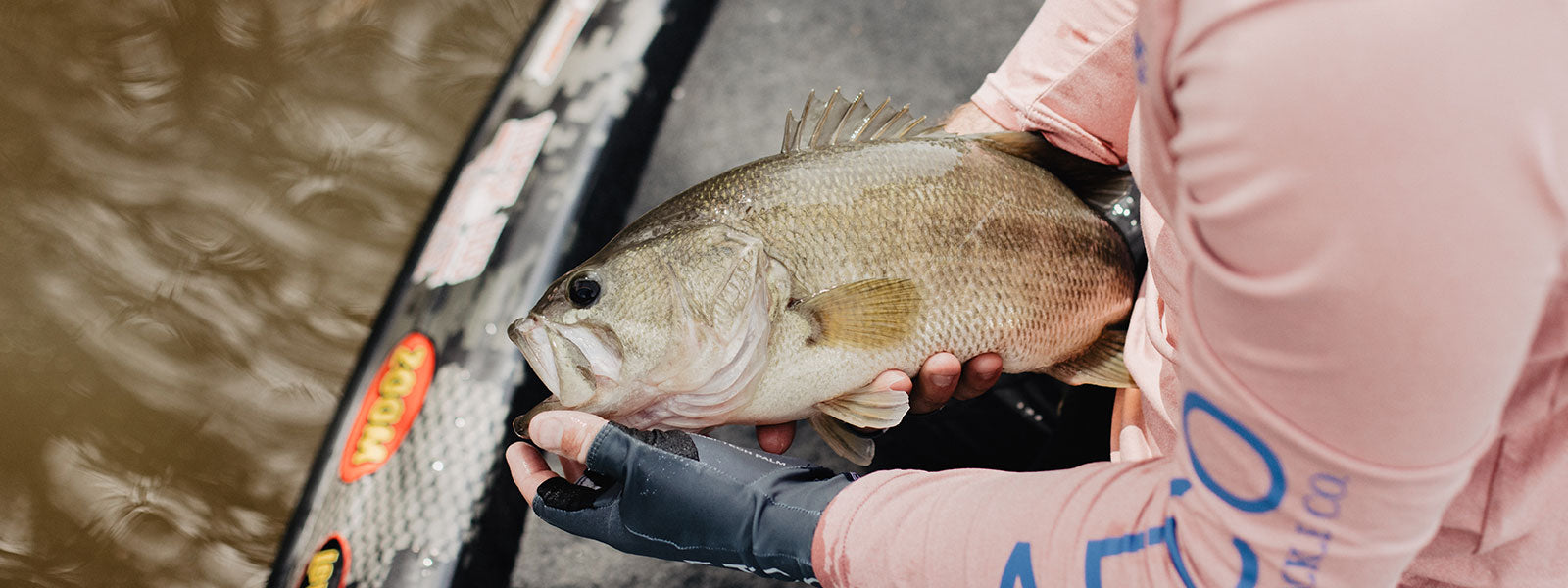
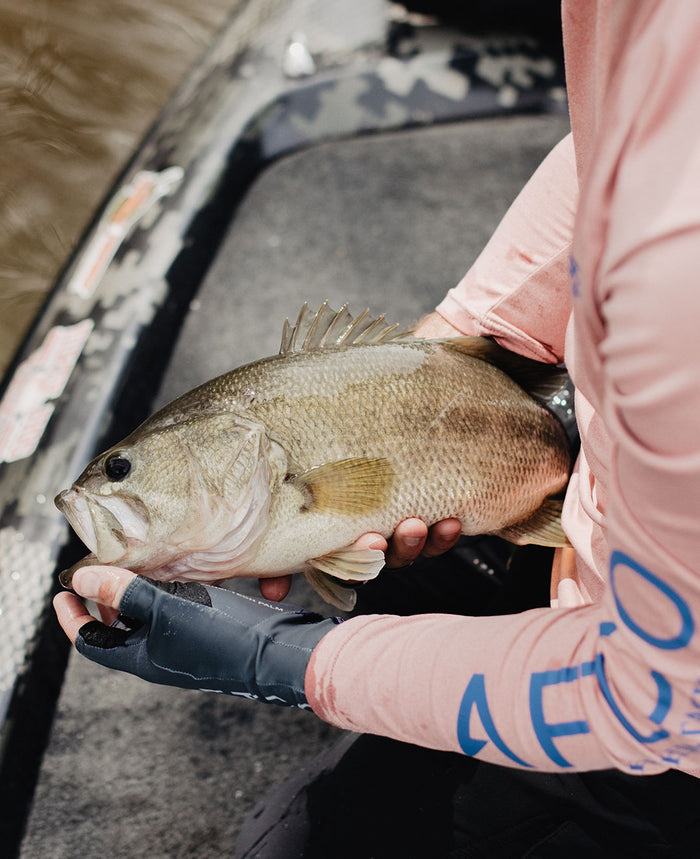
MSU Study Summary
Fight times, handling, low dissolved oxygen, and warm water impact survivability. Catch and release tournaments have minimal effect on survival if fish are landed quickly, handled properly, and kept in livewells with quality water at 84 degrees or less.
Water Temperature
It is always best to maintain water temperatures in the livewell and at the weigh-in site as close as possible to (or slightly below) the temperature where the fish came from. Fish are “cold blooded” animals, so their body temperatures are not regulated internally but rather by the water temperature around them. Depending on the time of year and ambient temperature in the lake, the optimum temperature for largemouth bass is below 84 degrees.
The MSU study confirmed that at 91 degrees, livewell water temperature is a serious problem for bass. You want to keep the temperature in your livewell close to the water temperature the fish came out of. It is important to remember that the temperature gauge on your boat is reading the water temperature near the surface, and your bass may have been living at a depth with a lower temperature than you show on your boat.
Once the livewell temperature reaches 84 degrees, keep it from getting any warmer by cooling it down with ice. Sudden temperature change of more than 7 degrees can be harmful to largemouth bass. To allow for longer, slower cooling of the water in your livewell, use block ice if available, or freeze water in a plastic bottle or another container and place in the livewell. Keep frozen plastic water bottles in your ice chest, so you can place them in your livewell to cool water as needed. At the weigh-in, fill your weigh-in bag with cooled water from your livewell rather than dipping in warm lake water.
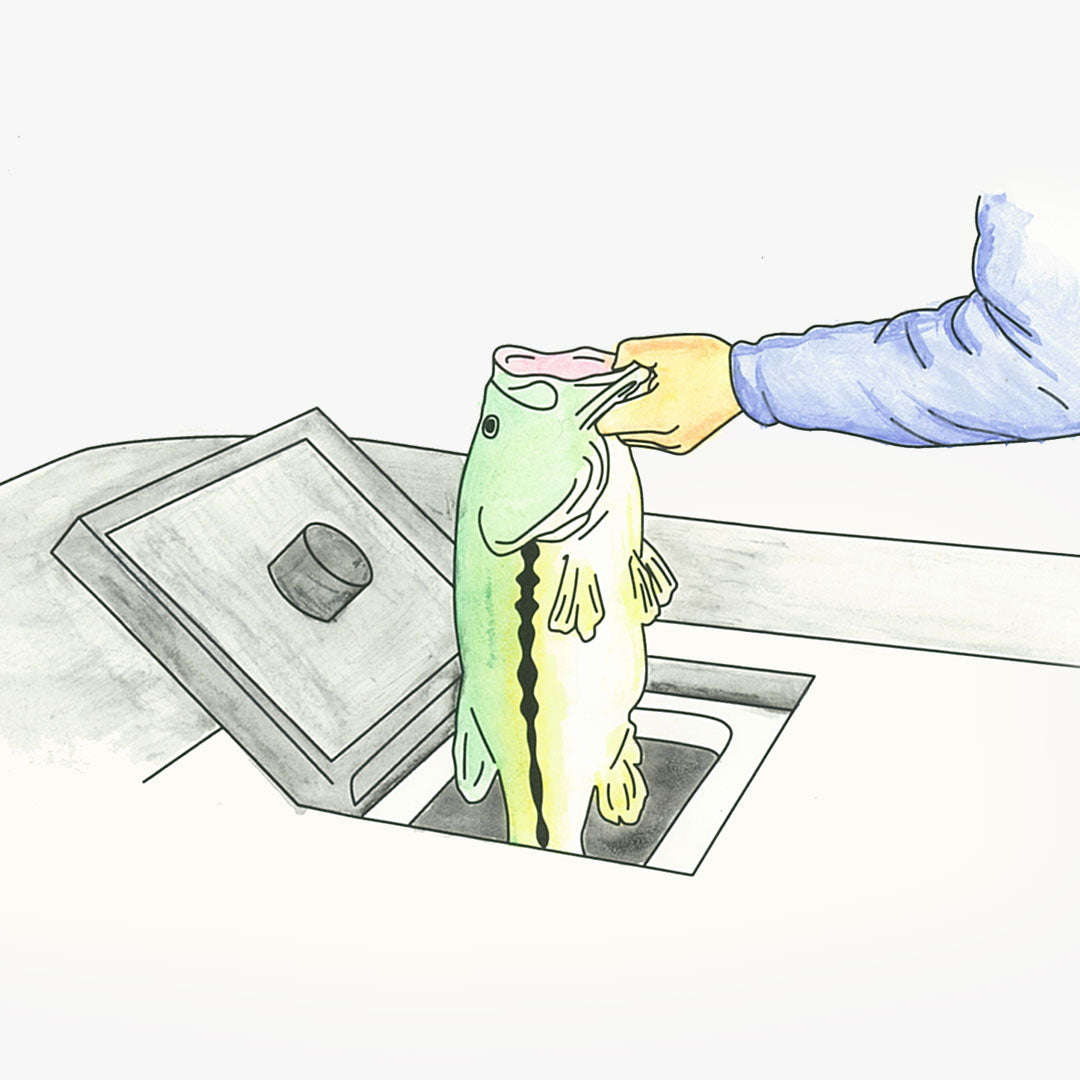
Pro Tip #1
Water temperature is the most important factor in bass survival. Maintain temperatures of no more than 84 degrees in your live well and weigh bag. Keep frozen water bottles in your ice chest to use for cooling the water as needed.
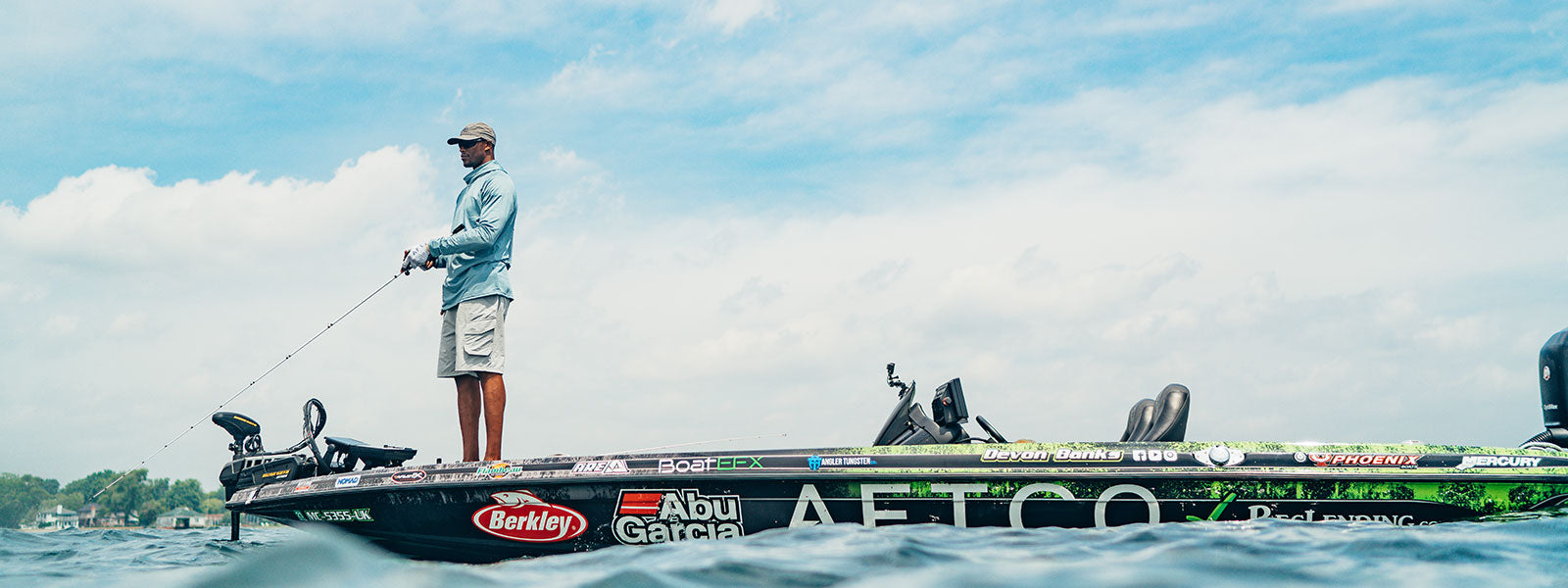
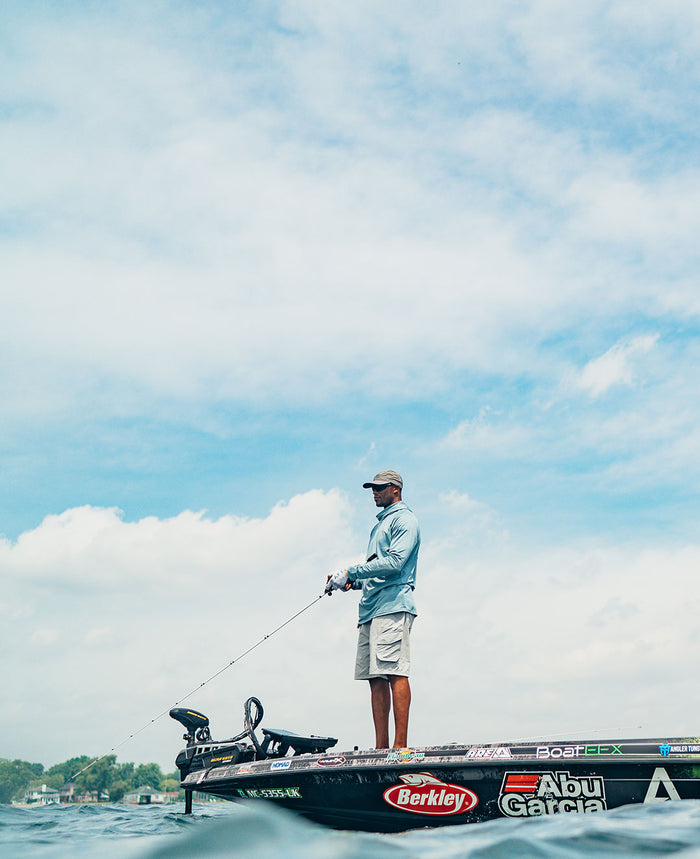
Oxygen
The amount of dissolved oxygen in your livewell and weigh bag is a factor in largemouth survivability.
Bass and all fish obtain needed oxygen by passing water over their gills. The MSU study proved that the minimum level of dissolved oxygen in your livewell is 5.5 ppm. It also showed that higher oxygen (8.5 ppm) was not a problem at 77 degrees or 84 degrees, but these higher dissolved oxygen concentrations were not enough to prevent mortality at 91 degrees where the mortality rate was over 50%. In other words, oxygen is essential, but more oxygen will not make up for too-warm temperatures.
Cool water is essential to survival, but cooling water also aids providing sufficient oxygen. Cool water holds more oxygen and reaerates faster than warmer water, and bass in cooler water use less oxygen than bass in warmer water. In addition, more or bigger fish in your livewell use dissolved oxygen faster.
More oxygen can be added to your livewell by adding fresh water periodically, but you must remember to add ice to maintain temperatures below 84 degrees. Add air to your live well diffused through an air stone creating small bubbles or run recirculating aerators continuously to maximize the amount of oxygen absorbed in the water.
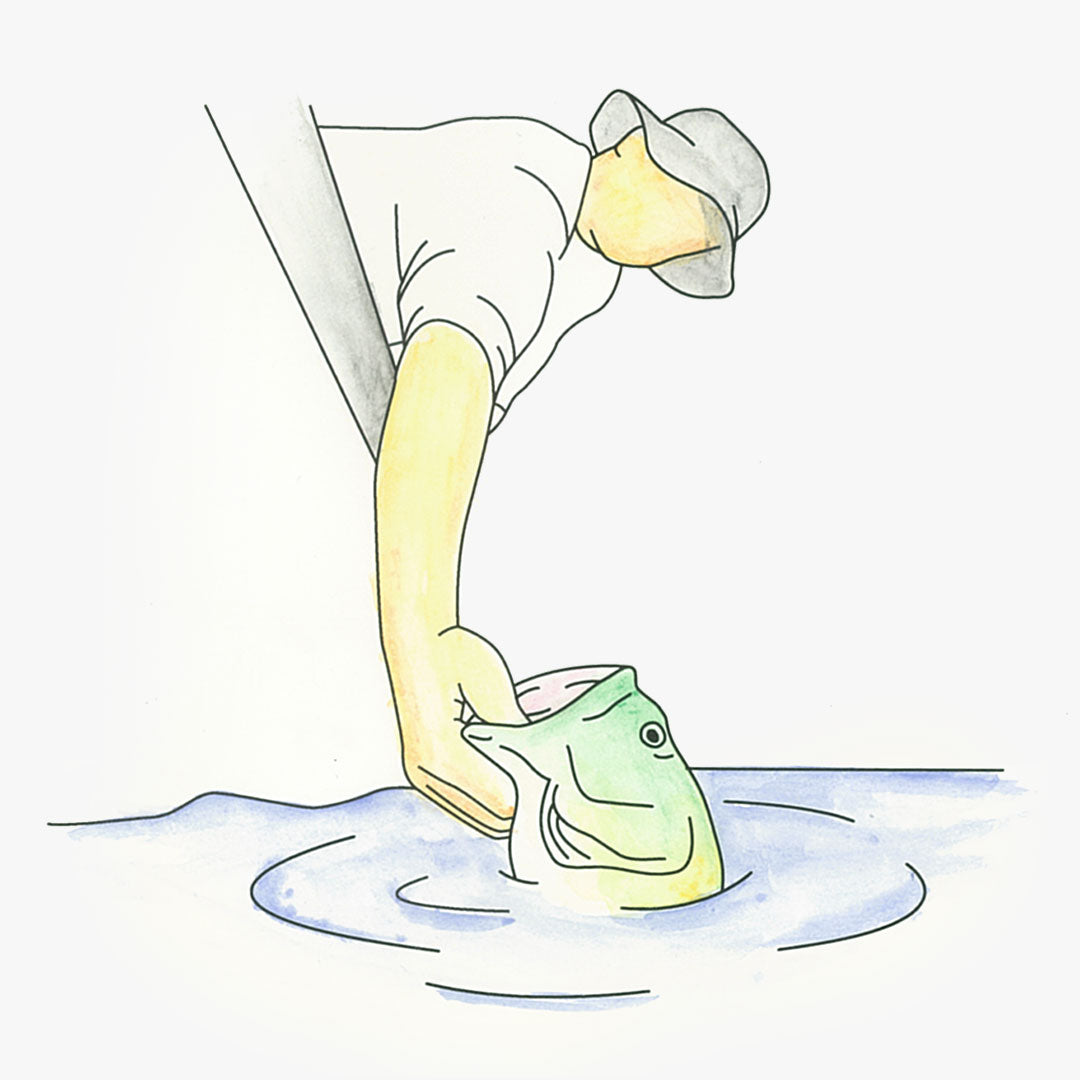
Pro Tip #2
Fish need oxygen. Maximize aeration and flush the live well with fresh water periodically to ensure you have adequate oxygen levels.

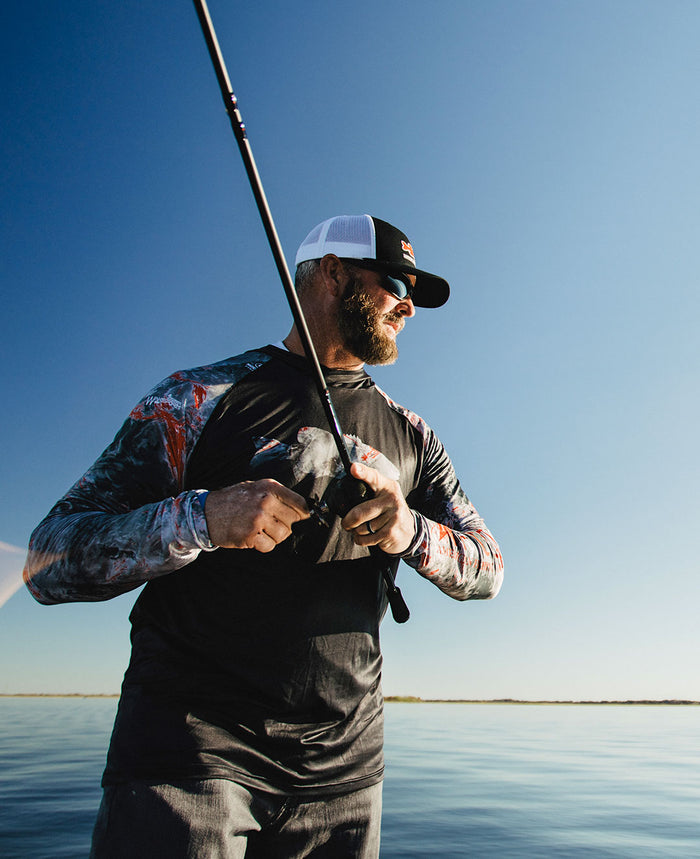
Angling Time & Fish Care
The MSU study confirmed that the amount of angling time does impact survivability.
Largemouth bass angled for one minute survived better than did those angled for three minutes. However, if the fish is landed quickly and handled carefully, catch and release has a minimal effect on survival.
Bass have a protective slime coating that helps to protect them from disease. It is important to be careful to not remove this coating when handling your fish. Wet your hands when handling the fish. It is also important to not "boat flip" your fish directly onto the rough dry carpet or deck of your boat as that will cause slime loss. Grip the fish's is lower jaw to remove the hook. Remove the hook as quickly as possible and use caution to not damage the gills. Keep the fish out of water for as short a time as possible.
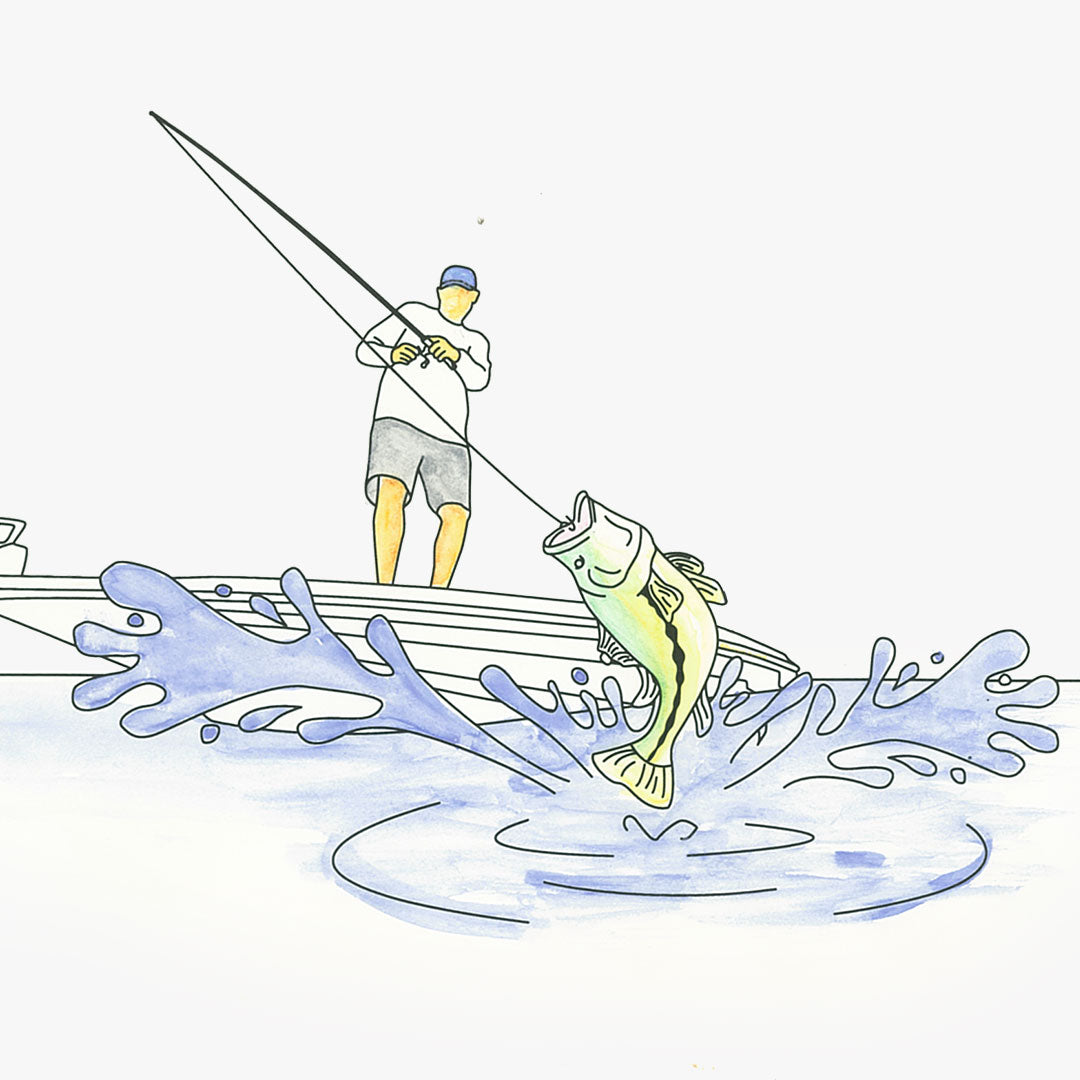
Pro Tip #3
Land your fish as quickly as possible and keep them in the air for as little time as possible. Wet your hands before handling the fish being careful not to remove the protective slime or damage the gills. Don’t "boat flip" your bass onto the deck.
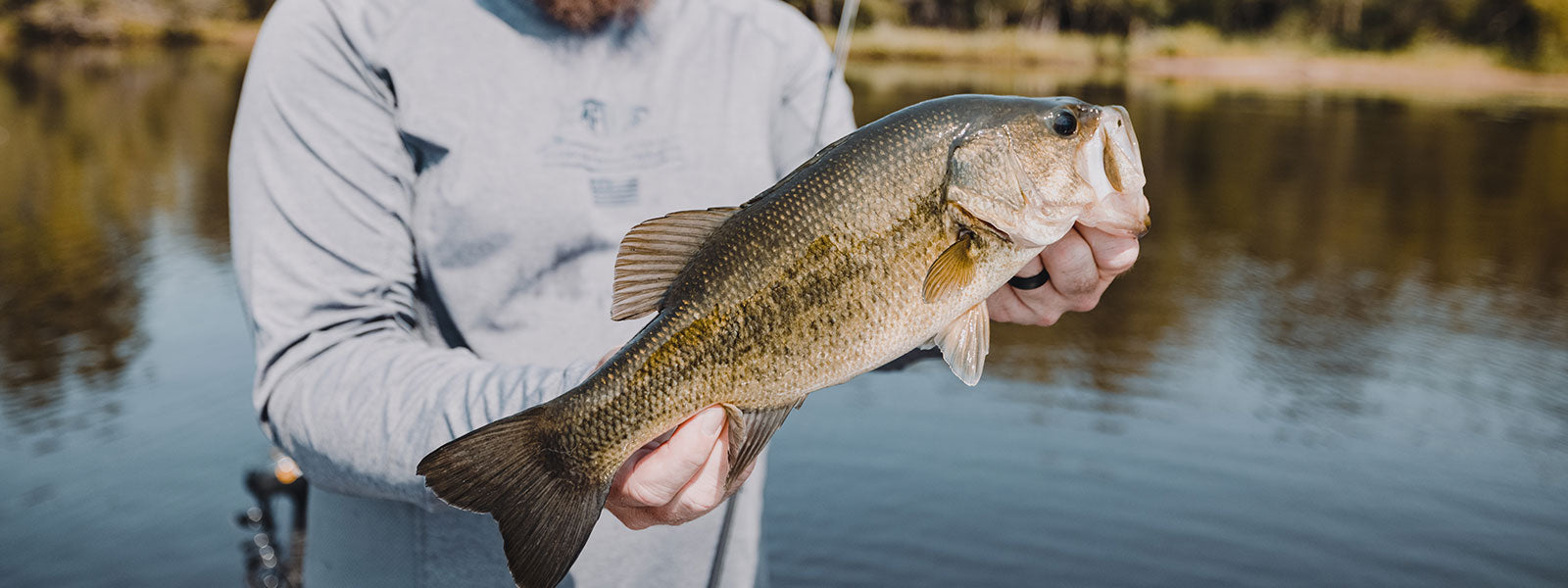
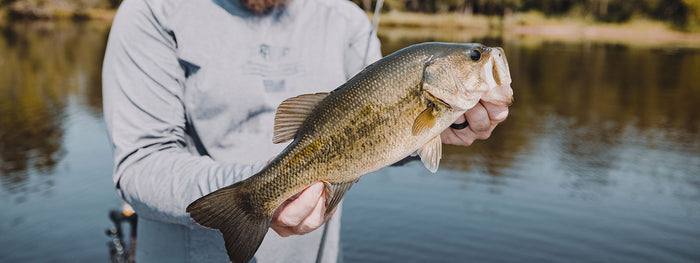
Bass Handling
Anglers should be especially careful when handling big bass not to damage the jaw. If the jaw is damaged, it is likely the bass will no longer be able to feed, leading to higher rates of mortality.
Hold bass in a fully vertical position or use two hands to support the body. Using a single hand to hold a bass without proper weight distribution can damage or dislocate the jaw.
